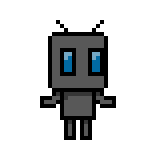What do you do when you’re feeling under the weather? You go and see the doctor, right? Or maybe you take some medicine and cuddle up on the couch under a blanket until you’re feeling all better.
Those are all things that can help you feel better when you’re feeling sick. But what if I told you that today, there are still a whole lot of people who do not have access to much modern medicine, let alone to a doctor who can prescribe it for them?
The United Nations concluded that of the estimated 7 billion people living on this planet today, less than half of those people have access to essential health services (such as a doctor, medicine for fever…).
Needless to say, this is an enormous number of people and so the UN is hard at work trying to tackle the global health crisis. For instance, they are aiming to reduce the worldwide number of mothers who die during childbirth to less than 70 per 100 000 people by 2030. Next to that, the United Nations are also looking to end preventable deaths among newborn babies and children under 5 years old and tackling deaths due to substance abuse (for example alcohol and other drugs).
However, COVID-19 has also unfortunately disrupted the good work that had already been set in motion, delaying the progress of the initial goals the UN set out to achieve. This will likely prompt a reevaluation of certain goals to see whether or not they are still realistic in their given timeframe.
You may ask yourself, "How can I have an impact on the health and wellbeing of others"? The answer to this is that at a young age, you can not have a direct impact. What you could have is an indirect impact. This by ensuring you follow the current COVID-measures and restrictions, so yourself and the people around you don't get sick. Doing that may significantly decrease the chance that people who don't have access to essential health services would get sick.
You could also have safety measures for example, with alcohol or drugs. If you don’t use them while growing up, you decrease the chances of abusing those substances at a later stage of your life. Your friends and family could also be influenced by your decision and once again, you could have an indirect impact on their life, health, and well-being.

